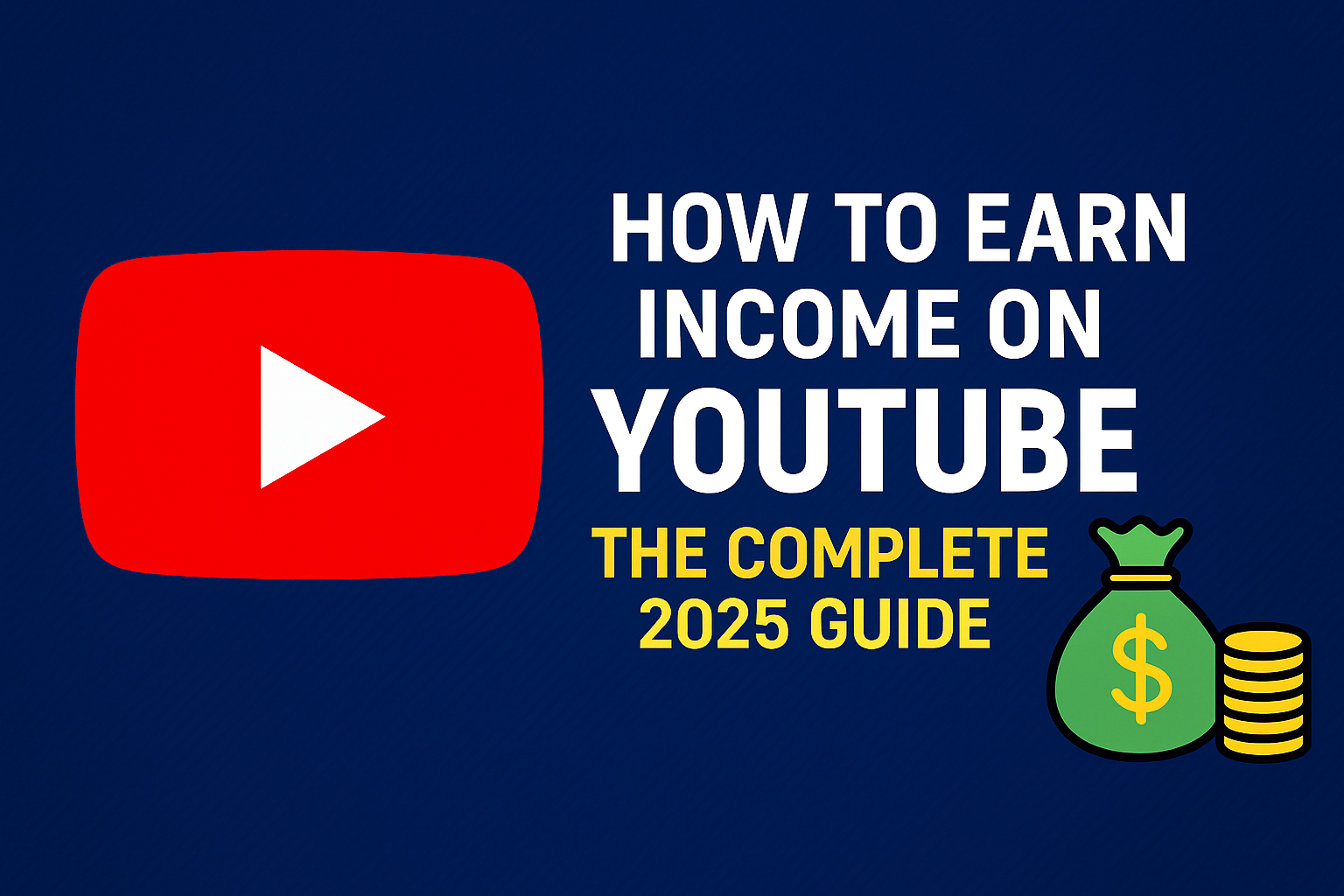
Monetization YouTube 2025
How to Earn Income on YouTube: The Complete 2025 Guide
In 2025, YouTube remains the number one platform for creators who want to turn their passion into profit. Whether you’re producing vlogs, tutorials, reaction videos, or tech reviews — YouTube offers multiple ways to earn income. Let’s dive into everything you need to know to start making money from your channel.
1. Meet the YouTube Monetization Requirements
To start earning, you must join the YouTube Partner Program (YPP). Here are the key requirements:
-
Have at least 1,000 subscribers
-
Gain 4,000 public watch hours in the last 12 months, or 10 million Shorts views in 90 days
-
Follow YouTube’s monetization policies and community guidelines
Once you meet these criteria, you can apply for monetization through your YouTube Studio dashboard.
2. Enable Google AdSense
After approval, you’ll need to connect your YouTube channel with a Google AdSense account. This is how you’ll receive payments. AdSense allows YouTube to display ads on your videos and pay you based on:
-
Ad views
-
Clicks
-
Engagements
Your income depends on your audience’s location, niche, and video length.
3. Use Multiple Income Streams
Successful creators don’t rely only on ads. YouTube provides various ways to boost your earnings:
a. Channel Memberships
Offer exclusive badges, emojis, and content to your loyal subscribers for a small monthly fee.
b. Super Chat & Super Stickers
If you go live, fans can pay to highlight their messages during live streams.
c. YouTube Premium Revenue
You get a share when YouTube Premium members watch your content.
d. Merchandise Shelf
Link your store to YouTube and sell branded products directly from your videos.
4. Optimize Your Content for Growth
Monetization means nothing without consistent traffic. Focus on SEO-friendly content:
-
Use keywords like “how to earn from YouTube”, “YouTube monetization 2025”, and “make money online with YouTube.”
-
Create eye-catching thumbnails
-
Maintain a consistent posting schedule
-
Keep viewers engaged with storytelling and editing techniques
5. Understand CPM and RPM
Your CPM (Cost Per Mille) is how much advertisers pay per 1,000 ad views.
Your RPM (Revenue Per Mille) shows how much you actually earn per 1,000 views after YouTube’s share.
CPM varies by niche:
-
Finance and tech channels: $10–$20 CPM
-
Entertainment and lifestyle: $1–$5 CPM
6. Follow YouTube Policies Strictly
Avoid copyright claims, reused content, or clickbait. YouTube values originality and authentic engagement. Violating these rules can lead to demonetization.
7. Bonus Tip: Promote Your Channel
Drive external traffic from:
-
Facebook and Instagram Ads
-
TikTok teasers
-
SEO-optimized blog posts about your videos
-
Collaborations with influencers
Conclusion
YouTube monetization isn’t instant — it’s a process that rewards consistency, creativity, and smart optimization. Whether you’re starting from zero or already have an audience, follow these steps to transform your YouTube channel into a sustainable income source in 2025.